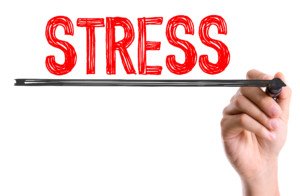
If your fasting glucose is about 106, do not panic, as this does not automatically mean you have insulin resistance or prediabetes.
A few years ago I visited a general practitioner to find out why I was suddenly having a lot of diarrhea.
I decided to add in a routine physical, which included the standard fasting glucose test.
The result was 106, which netted a “flag” alert in the report, that was e-mailed to me.
The test result came a few days before my visit, and the doctor merely mentioned that it was flagged, but not to worry about it.
Several months later I was reviewing my medical paperwork and saw the printed-out blood glucose result. In the next column it said “impaired glucose metabolism.” WHAT?!
A normal fasting blood sugar reading is 70-100 (mg/dL).
The American Diabetes Association says that 1-2 hours after eating, the fasting glucose (blood sugar) reading should be under 180 mg.
The ADA says that over 125 for fasting glucose means diabetes.
So what does 106 mean?
According to Kaiser Permanente (my HMO at the time of the blood sugar test), a normal fasting glucose result is “less than or equal to 110 milligrams per deciliter.”
Two years ago, however, their normal range was under 100, which was why my result of 106 was flagged.
The Kaiser site for test result information is open only to members, and it states:
“These ranges vary from lab to lab, and your lab may have a different range for what’s normal.
“Your lab report should contain the range your lab uses. Also, your doctor will evaluate your results based on your health and other factors.
“This means that a value that falls outside the normal values listed here may still be normal for you or your lab.”
The site lists factors (other than diabetes) that can cause a high blood sugar reading, and first on the list is “Stress.” This information was not there two years prior to my checking it.

Shutterstock/Gustavo Frazao
If you have a fasting blood sugar reading in the low 100s like mine was, ask yourself how much stress you’ve been under lately.
As a former personal trainer, I am well-versed in blood sugar’s impact on the body, as this is the main fuel source for working muscles and is highly manipulated by exercise and diet.
If you’re under chronic stress, your body is in a perpetual “fight or flight” state.
To prepare for the fight or flight, the liver dumps sugar into the bloodstream as a ready fuel source for muscles.
In chronic stress, however, the fight or flight never comes, and blood sugar remains elevated.
A bout of intense exercise will lower the blood sugar and keep it lowered for awhile, but if the stressor doesn’t go away, the fasting blood sugar may bounce right back up again into the low 100s.
For eight weeks prior to my fasting glucose test, I was under extreme emotional duress – it was really ugly, and I developed microscopic colitis as a result (which caused the diarrhea).
However, disrupted sleep can cause insulin resistance (elevated fasting blood sugar that’s not elevated enough to qualify for diabetes).
David Edelson, MD
For my article titled “Can Poor Sleep Cause Insulin Resistance,” I interviewed Dr. David Edelson, MD, board certified in internal and bariatric medicine, one of the top obesity experts in the U.S., and founder and medical director for HealthBridge.
“There is a strong association between sleep disorders and both obesity and insulin resistance,” explains Dr. Edelson in my article.
“When I refer to sleep disorders, I am speaking of anything that can cause either a lack of sufficient quantity of sleep (insomnia, lifestyle issues) or poor quality (sleep apnea, restless legs, fragmented REM sleep, etc.).”
In fact, insulin resistance (prediabetes) can be caused by just one night of bad sleep, says a report in the Journal of Endocrinology & Metabolism (2010).
“Our data indicate that insulin sensitivity is not fixed in healthy subjects, but depends on the duration of sleep in the preceding night,” says the report.
Not only was I experiencing horrendous anxiety for eight weeks, but throughout that eight weeks, my sleep was disrupted every single night.
After doing my homework about what an elevated fasting glucose might really mean, I was not surprised mine came in at 106.
I was in a fight or flight mode every waking minute, which included lying in bed with a racing heart from the anxiety, unable to sleep soundly.
Two years later I had another fasting glucose test: 85. The stressors of two years ago were well-behind me.
Based on just one blood sugar test of around 106, you should not jump to conclusions and assume you have prediabetes or insulin resistance, especially if you exercise, are not overweight and have a pretty healthy diet.












